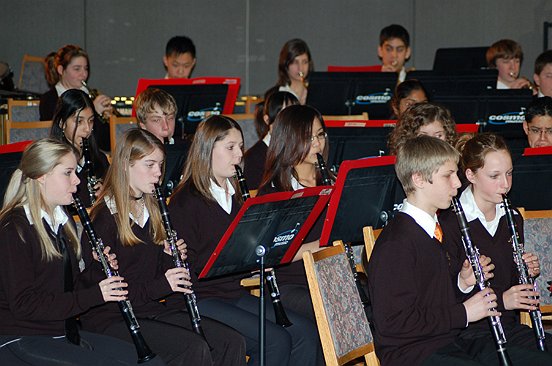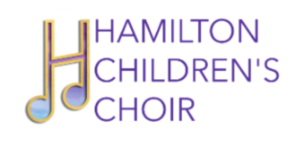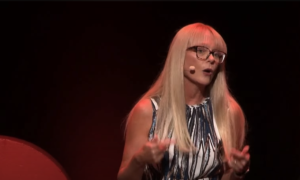by Dennis Ullmann
What should first time festival participants, both students and directors, keep at the foremost of their minds when preparing for a festival?
Festival participants should focus on performing well, hearing great music and learning how to improve their overall musicality. The best performances demonstrate a variety in repertoire. The performance should focus on playing with great intonation while maintaining proper balance and blend. Ensure that the melody is heard at all times. An ensemble that performs with varied levels of dynamics is always enjoyable to hear. Remember, at a festival you are performing for an audience that includes professional musicians – aka adjudicators. Adjudicators appreciate when extra time is taken to make the inner details of the music sparkle.
Aside from the excitement and motivation of being adjudicated, what are some of the other benefits every participant will receive from participating in a music festival?
It is important for students and teachers to dedicate some time hearing the other ensembles. If clinics are available, students should take advantage of the opportunity to learn from others – even their peers provide some great ideas. Listening to your band from the audience’s perspective can be a valuable learning experience. At MusicFest ensembles are often recorded, and at our festival, we provide recordings with and without adjudicator comments and a DVD for each band. At the National Finals for MusicFest Canada, bands have an opportunity to participate in sight reading a new song as part of developing new skills. Students and teachers have an opportunity to network and develop relationships with others who share similar interests.
How much do you see student or director nervousness affecting their performance? Is this a major factor, in your opinion?
Nervousness or anxiety could have a major impact on any performance. Students are reminded to complete the preparation (aka practice) prior to the day of the festival so they can begin the performance knowing that they have put their best effort forward beforehand. The sooner the practice begins the more relaxed students will hopefully be on stage. One main area that may be negatively impacted by nervousness and anxiety is the concept of proper breath support. Often when performing, young musicians will take in shallower breath/air resulting in a drop in tone quality, and limit their ability to perform with proper phrasing and dynamics. Air is the fuel for the instruments. All in all, anxiety does not usually impact an entire performance, once the performance begins everyone tends to settle into the concert.
From your experience, what is the most unfortunate and most avoidable error that bands make during or when preparing for an adjudicated performance?
The tuning on stage of each individual performer just prior to your performance should be avoided. This procedure truly takes away from the festival performance and tends to put many students on edge, thus increasing anxiety levels. It is recommended that all tuning be completed in the warm up room and not on stage.
Repertoire — As an adjudicator, can you tell when a band is playing music that is too easy for them (perhaps because they are worried about making a poor showing) or too difficult for them? What are the consequences of making unwise choices for repertoire?
The choice of repertoire is a task that should be given serious consideration. For example, jazz ensembles are encouraged to play swing, ballad and Latin or funk – be sure to include improvised solos. Concert band repertoire should include a lyrical selection along with a march, transcription, or something that is contrasting to the first two selections. The performance of pop music takes away from the festival setting. Save the pop tunes for another performance. Choose wisely and consult the syllabus.

Adjudicators have differing opinions regarding this issue. Personally, I would prefer to hear a band perform music with confidence and expressiveness. It is much more encouraging to recommend that a band start performing music at the next level, rather then telling them a selection appeared to be too difficult for the band to perform in a truly musical manner. Bands performing music that is too difficult often have challenges keeping the tempo/groove consistent and often the balance and intonation are very weak. Having one selection that is more challenging than the others demonstrates that the band is striving to improve.
The performance of a short chorale is beneficial prior to the performance of the festival repertoire and does help to minimize performance anxiety. One more tip: it is appreciated if all of the measures are numbered on each score. This makes for easy reference when adjudicators are making comments and enables them to focus more on listening and less on trying to find a reference point to support a comment.
What would be the role of parents in supporting their child as he/she prepares for the festival?
Parents, family, relatives and friends should encourage students to prepare in advance of the festival performance and respect the time that is required by students when they are practicing. Most importantly parents and family should – attend the performance!! From my experience, most bands that come with their “fan club” tend to play with more confidence and excitement.
We’ve all met people who gave up music because of a bad performance experience.In the overall scheme of things, is having your performance judged by someone in opposition to the idealist’s view of music as being “for enjoyment only?” After all, no one wants to get all stressed out and squeeze the enjoyment out of music.
The adjudicators role, I believe is often misunderstood. I prefer not to refer to adjudicators as judges. Judges make decision regarding guilty or not-guilty, or they tend to decide the outcome of dispute. A music festival adjudicator is providing encouragement and acknowledgement of the positives while providing motivation for students and conductors by recommending continued improvement not only for this year, but in the future as well. If enjoyment is not acknowledged and encouraged, what will inspire students to continue advancing on their musical journey? The challenges and recommendations provided by an adjudicator should be ones that are based upon the existing ensemble’s foundation and are presented to help them reach for the next level.
———————————————————-

Dennis Ullman has worked extensively in music education and performance for over 30 years. He has adjudicated at regional music festivals, Canada’s Wonderland School Music Festival and affiliate festivals of MusicFest Canada, is a member of MusicFest Canada Division Committee and is Regional Co-ordinator for OCM.
Recordings include Kawartha Jazz Ensemble’s “Duke’n It Out”. He is currently performing with Icy Redd and Reddemption Road. More information is available at www.drumsinc.ca or via drums@sympatico.ca.





